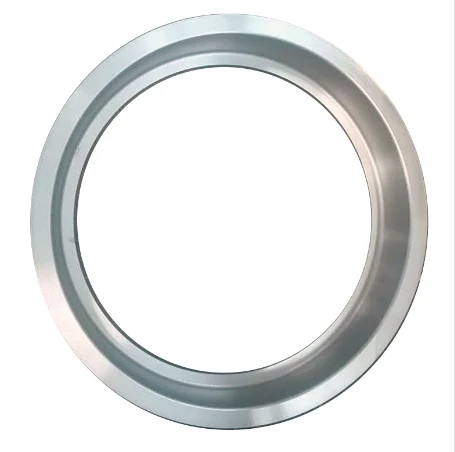Sep . 30, 2024 17:06 Back to list
OEM Cast Silicon Aluminum Heat Exchanger for Residential Heating Systems
The Role of OEM Cast Silicon Aluminum Heat Exchangers in Domestic Heating Boilers
In recent years, the demand for efficient heating solutions in residential settings has escalated. One of the key components that plays a critical role in heating systems, particularly in domestic boilers, is the heat exchanger. Among the various types of heat exchangers available, OEM cast silicon aluminum heat exchangers have gained significant popularity. This article explores the advantages, applications, and considerations of these innovative components in domestic heating boilers.
Understanding Heat Exchangers
A heat exchanger is a device designed to transfer heat between two or more fluids without mixing them. In domestic heating systems, this process is crucial for maintaining comfortable indoor temperatures. Heat exchangers allow the transfer of heat from a hot fluid, such as water heated by a boiler, to another fluid, typically the air circulating throughout a home. Without the presence of a reliable heat exchanger, the efficiency of the entire heating system could be compromised.
The Benefits of OEM Cast Silicon Aluminum
OEM, or Original Equipment Manufacturer, cast silicon aluminum heat exchangers are specifically tailored components that offer numerous advantages
1. Corrosion Resistance One of the most significant advantages of silicon aluminum alloys is their excellent resistance to corrosion. This characteristic is essential in heating systems where water may contain various impurities that could otherwise lead to degradation of conventional materials. The robustness of these alloys ensures longer lifespans for heat exchangers, thereby reducing maintenance costs.
2. Enhanced Thermal Conductivity Silicon aluminum has superior thermal conductivity compared to many traditional materials. This property allows for efficient heat transfer, meaning that the boiler can reach the desired temperatures more quickly. As a result, homeowners experience faster heating times and reduced energy consumption, leading to lower utility bills.
3. Lightweight Design Cast silicon aluminum heat exchangers are relatively lightweight compared to those made from other materials. This advantage simplifies installation and minimizes the load on supporting structures within the heating system. It also allows for more flexible design options in modern boiler systems.
4. Customizable Solutions As OEM products, these heat exchangers can be custom-designed to meet the specific requirements of various boiler systems. This customization ensures that the heat exchanger fits perfectly within existing setups, enhancing overall efficiency.
oem cast silicon aluminum heat exchanger for domestic heating boiler

Applications in Domestic Heating Boilers
In domestic heating boilers, cast silicon aluminum heat exchangers are used in various configurations, including condensing boilers, conventional boilers, and combination boilers. Their application is particularly advantageous in high-efficiency models where maximizing heat recovery is essential. In such systems, the heat exchanger allows for the reuse of heat from flue gases, providing an eco-friendly solution that reduces carbon footprints.
Considerations for Implementation
When integrating OEM cast silicon aluminum heat exchangers into domestic heating systems, several factors should be considered
- Compatibility It’s crucial to ensure that the heat exchanger is compatible with the specific type of boiler and the heating system's requirements. Consulting with manufacturers or professionals can help guarantee an optimal fit.
- Maintenance Although silicon aluminum heat exchangers are durable, regular maintenance is essential to prevent any potential buildup of deposits and ensure long-term performance. Homeowners should schedule routine inspections to maintain efficiency.
- Cost Factors The initial investment in OEM cast silicon aluminum heat exchangers may be higher than traditional options. However, taking into account their longevity, efficiency, and reduced maintenance costs can often result in significant savings in the long run.
Conclusion
OEM cast silicon aluminum heat exchangers represent a forward-thinking solution for enhancing the efficiency and sustainability of domestic heating boilers. With their robust corrosion resistance, enhanced thermal conductivity, and customization potential, these heat exchangers help meet the increasing demand for effective heating systems in homes. As the industry continues to evolve, the adoption of innovative materials and designs will play a crucial role in shaping the future of residential heating solutions.
-
Centrifugally Cast Iron Water Main Pipe | Ductile Iron Solutions
NewsAug.24,2025
-
Durable Cast Steel Concrete Pipe Mold Bottom Rings & Base Trays
NewsAug.23,2025
-
Centrifugally Cast Iron Water Main Pipe for Reliable Mains
NewsAug.22,2025
-
Durable Centrifugally Cast Iron Water Main Pipe
NewsAug.11,2025
-
Centrifugally Cast Iron Water Main Pipes for Reliability
NewsAug.10,2025
-
High-Quality Centrifugally Cast Iron Water Main Pipes
NewsAug.09,2025


